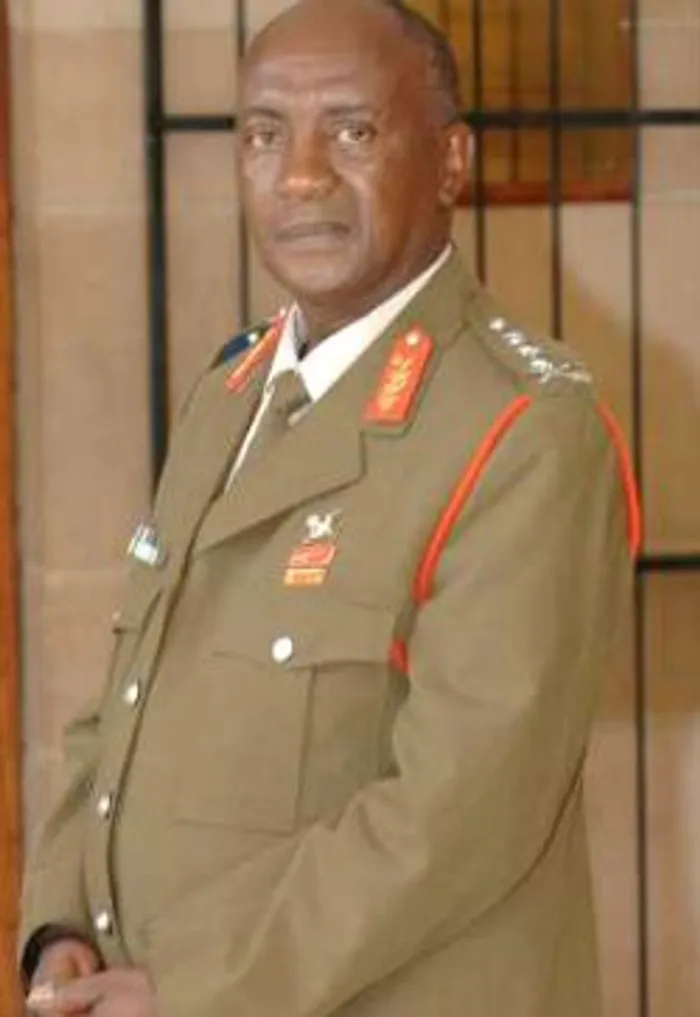Petane outwitted apartheid regime, which saved him from hangman

Former inspector-general and MK stalwart Mxolisi Petane Former inspector-general and MK stalwart Mxolisi Petane
Mxolisi Petane died on September 27, 2017. During his lifetime he was a friend, comrade, political commissar, a hero of our people, a soldier of their army, Umkhonto we Sizwe; and, when victory had become certain, he became a major-general in democratic South Africa’s National Defence Force.
In September 1987, we walked together up the stairs leading from the holding cells in the Cape Town Supreme Court to court No1. He was charged with terrorism.
The State would allege that he had placed a car bomb outside a shopping centre in Parow. During his apprehension he had also shot a policeman.
He was facing an almost certain death sentence. His best chance of survival seemed to be to assuage the undisguised hostility that judges had previously shown towards accused in his position. Instead of doing so he whispered to me: “I am a soldier of MK. I want you to claim prisoner of war status.”
Such a claim had become a political priority of the ANC after it acceded to the Additional Protocol 1 of the Geneva Convention (1977). Lusaka agreed that Mxolisi’s case would be a fitting one to raise the issue.
When he was asked to plead to the charges Mxolisi refused. With quiet dignity he explained that the indictment in the matter of the State v Petane it had failed to disclose that it was an apartheid state.
It ruled South Africa’s people through the barrel of a gun. It used terror to frighten them into submission to white minority rule.
The state and its judicial arm were the terrorists. Their so-called “law” and their hangman in Pretoria were weapons of terror, not justice.
He was a soldier of MK. He would not allow himself to be labelled as a terrorist by apartheid’s legal process. He did not recognise the jurisdiction of an apartheid court. He requested the judge to consider and rule on his plea for prisoner of war status. And the court did so.
At first the prosecutors smirked at his claim. However, when they realised its enormity they brought their most experienced state advocate (and a gaggle of “legal experts”) into the case.
International support for Mxolisi’s case was provided, inter alia, by Professor Kader Asmal (then at Trinity College Dublin), the Max Planck Institute (Germany). Professor Richard Falk (US) and acting Prime Minister Evans (Australia).
Emissaries and journalists from all over the world descended on the court for the trial. .
In law, the claim could never succeed. No apartheid judge could ever admit that the state and its judiciary were illegal, and that the ANC was legally justified in resorting to armed conflict to overthrow the regime.
However, the issue was not one of law, but of politics and legitimacy. Neither the court nor the regime were able to address their own illegitimacy satisfactorily.
Though the judge did not concede what Mxolisi alleged, namely that MK (in the words of the Geneva Protocol), were “fighting against a racist regime in the exercise of a people’s right to self-determination as enshrined in the UN Charter”; few people in the civilised world would agree with the judge.
Mxolisi seized the political space in court that the regime had afforded the ANC and used it successfully to further the struggle for the liberation of our people. Whereas the state had attempted to label him a terrorist, he became a hero and showed who the real terrorists were.
Before he left South Africa for military training in 1976 Mxolisi had learned about the Freedom Charter. He had absorbed its principles and stood for them throughout his life. He realised then the ANC was the only organisation that could further the Charter’s programme. The ANC became his political home.
A year after his imprisonment on Robben Island he wrote to me saying that he had met many of his comrades there. They were regrouping, and taking the struggle forward. Minister of Defence and Military Veterans Nosiviwe Mapisa-Nquakula pointed out at his funeral in Gugulethu that Mxolisi’s legacy must not be undermined.
It remains the duty of our people to regroup, stand up, and ensure that our leaders implement the principles he stood for. Only when they do so will we be able to say with a clean conscience and a good heart, “Hamba Kahle Qabane!”
* Donen is an Advocate at the Cape Bar. He represented Major-General Petane in the case reported as S v Petane 1988 (3) SA 51 (CPD).